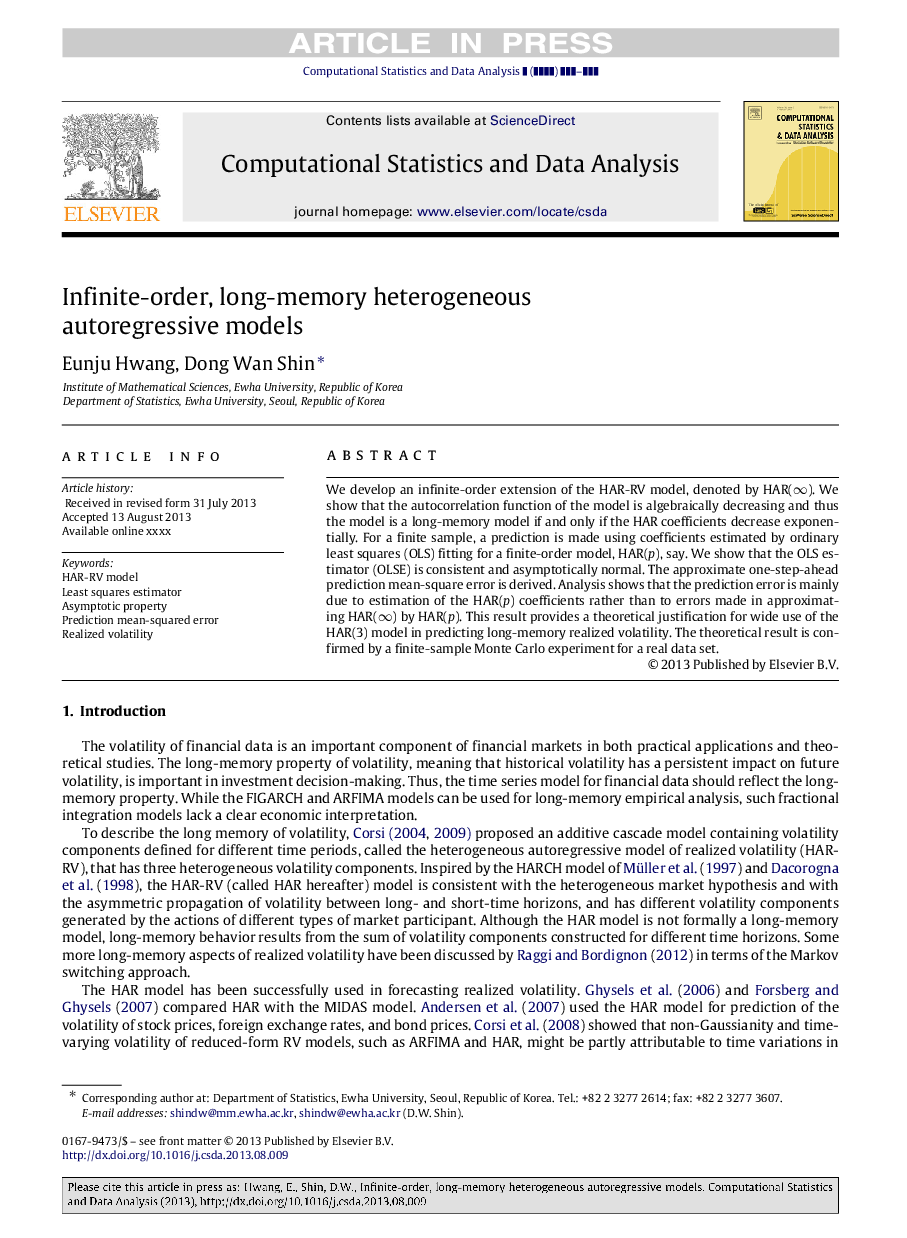| Article ID | Journal | Published Year | Pages | File Type |
|---|---|---|---|---|
| 6870030 | Computational Statistics & Data Analysis | 2014 | 20 Pages |
Abstract
We develop an infinite-order extension of the HAR-RV model, denoted by HAR(â). We show that the autocorrelation function of the model is algebraically decreasing and thus the model is a long-memory model if and only if the HAR coefficients decrease exponentially. For a finite sample, a prediction is made using coefficients estimated by ordinary least squares (OLS) fitting for a finite-order model, HAR(p), say. We show that the OLS estimator (OLSE) is consistent and asymptotically normal. The approximate one-step-ahead prediction mean-square error is derived. Analysis shows that the prediction error is mainly due to estimation of the HAR(p) coefficients rather than to errors made in approximating HAR(â) by HAR(p). This result provides a theoretical justification for wide use of the HAR(3) model in predicting long-memory realized volatility. The theoretical result is confirmed by a finite-sample Monte Carlo experiment for a real data set.
Related Topics
Physical Sciences and Engineering
Computer Science
Computational Theory and Mathematics
Authors
Eunju Hwang, Dong Wan Shin,
